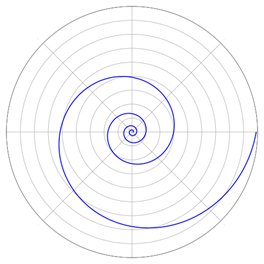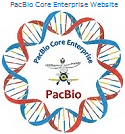DeepSeq Resources and User Information
Introduction/Basics

- A primer on Illumina sequencing explaining the technology, the workflow, and various applications.
- Illumina's 'beginner's guide' discussing the technology and when to use it.
- Illumina's Adapter Sequences document describing the standard adapters that can be used without requiring custom sequencing primers.
- Publications and information about deep/massively-parallel sequencing (MPSS) can be found on the Publications page at Illumina. We recommend starting with the review by DR Bentley, "Whole-genome re-sequencing".
- When Do I Use Sanger Sequencing vs NGS?
- A detailed poster from Illumina with visual descriptions of sequencing methods (2024).
- Illumina's e-book on Multiomics (2021).
- Illumina's e-book on Single-Cell Sequencing (2024).
- Illumina's e-book on Cancer Research Methods (2024).
- A description of the Illumina Library Structure.
- A discussion on indexing/barcoding.
- Illumina's Overview of Indexed Sequencing.
- Library Prep and other Protocols are available in the sections below, and information on the sample submission process is available on its own page. Please follow the link in the navigation panel for more information.
- Tips for library troubleshooting and optimization.
- A list of frequently asked questions and answers.
- IDT's Guide to Next-Gen Sequencing.
Grant Support and Funding

- The UMass Chan Deep Sequencing Core (DSCL) will provide a formal letter of support to include in grant applications.
- The Core provides service to both internal and external customers. For small and medium businesses, the Massachusetts State Innovation Voucher Program allows access to Core facilities in the UMass system.
Data and Bioinformatics

- A tool for Data Quality Score Viewing: FASTQC
- Some information on using Quality Scores: Q/Phred Scores
- Open source software GBrowse for adding and viewing genome annotations
- Illumina (Solexa) Data Analysis, a presentation by Dr. David Lapointe, 20 Mar 2008 - please note some links are out of date!
- A Short-Read Sequence Alignment Software List on Wikipedia
- A review of bioinformatics tools from the Journal of Clinical Medicine
- Data analysis guides from 10X Genomics
- We are establishing a library of reference genomes and analysis tools; we welcome requests and suggestions at DeepSequencingCoreLabs@umassmed.edu.
Other Tools

- A handy calculator tool for DNA and RNA: NEBioCalculator
- A sequencing coverage calculator from Illumina: Illumina Sequencing Coverage Calculator
- A read coverage calculator from NEB: NEB Read Coverage Calculator
- GMOD: Generic Model Organism Database
- The NIH Gene Expression Omnibus, a repository for data from gene expression experiments, accepts Next Generation or Deep Sequencing data. Information about data submission and links to the tools at GEO may be found on the GEO Submission Information Page: https://www.ncbi.nlm.nih.gov/geo/info/submission.html. The GEO Projects page is located here: https://www.ncbi.nlm.nih.gov/geo/summary/?type=taxfull
Library Protocols


AMPure bead cleanup protocol
AMPure PB bead creation protocol
Index Pooling Guide
ChIP-SEQ Technical Note
Small RNA Library FAQs
DNA Library FAQs
A comparison of Alt-R S.p. Cas9 nuclease with its variants
ATAC Protocol publication
Illumina's ATAC guidelines
10X Genomics Support for correct protocol selection
Guides for difficult-to-prepare samples
White paper on preparing cell-free DNA and FFPE samples
Cut & Run Protocol publication
Older Protocols
Please note that some details such as recommended adapter sequences may have changed since these were written.![]()
Illumina TruSeq Prep Guides
TruSeq RNA
TruSeq Small RNA
TruSeq DNA
Chromatin IP Library Protocols
Illumina Chromatin IP
Newer Illumina ChIP Seq Prep
Data Sheet
Core Lab ChIP Notes
Genomic DNA Library Protocols
Illumina Genomic DNA
Core Lab Genomic Notes
Small RNA Library Protocols
Illumina Small RNA Protocol NEWER
Illumina Small RNA
Mello Lab small RNA
NEW and IMPROVED 14JUL08 Mello Lab small RNA
Expression/cDNA libraries
Illumina Protocols (long) available from core lab, please email
DeepSequencingCoreLabs@umassmed.edu to request them.
Publications

The UMass Chan Deep Sequencing Core Labs would be pleased to have you mention us in the acknowledgements section of any publications or presentations of data generated with our support. Our Research Resource Identifier is RRID:SCR_017702.
If you would like to have your publication listed on the Core's website to help highlight the work UMass researchers are doing, email us the reference at DeepSequencingCoreLabs@umassmed.edu.
Publications of general interest:
 Swatting Flies: Biting Insects as Non-Invasive Samplers for Mammalian Population Genomics; Mol Ecol. 2025 Jan 22:e17661.doi: 10.1111/mec.17661
Swatting Flies: Biting Insects as Non-Invasive Samplers for Mammalian Population Genomics; Mol Ecol. 2025 Jan 22:e17661.doi: 10.1111/mec.17661
https://pubmed.ncbi.nlm.nih.gov/39838904/
Genomic profiling of circulating tumor DNA for childhood cancers; Leukemia. 2024 Nov 10.doi: 10.1038/s41375-024-02461-x
https://pubmed.ncbi.nlm.nih.gov/39523434/
Single-cell nascent RNA sequencing unveils coordinated global transcription; Nature. 2024 Jul;631(8019):216-223
https://pubmed.ncbi.nlm.nih.gov/38839954/
Microfluidics-free single-cell genomics with templated emulsification; Nat Biotechnol. 2023 Nov;41(11):1557-1566
https://pubmed.ncbi.nlm.nih.gov/36879006/
Simultaneous sequencing of genetic and epigenetic bases in DNA; Nat Biotechnol. 2023 Oct;41(10):1457-1464
https://pubmed.ncbi.nlm.nih.gov/36747096/
Molecular spikes: a gold standard for single-cell RNA counting; Nat Methods. 2022 May;19(5):560-566
https://pubmed.ncbi.nlm.nih.gov/35468967/
Multiplex-GAM: genome-wide identification of chromatin contacts yields insights overlooked by Hi-C; Nat Methods. 2023 Jul;20(7):1037-1047
https://pubmed.ncbi.nlm.nih.gov/37336949/
Whole genome sequencing reveals host factors underlying critical Covid-19; Nature. 2022 Mar 7. doi: 10.1038/s41586-022-04576-6
https://pubmed.ncbi.nlm.nih.gov/35255492/
Optimization of enzymatic fragmentation is crucial to maximize genome coverage: a comparison of library preparation methods for Illumina sequencing; BMC Genomics. 2022 Feb 1;23(1):92
https://pubmed.ncbi.nlm.nih.gov/35105301/
A multicenter study benchmarking single-cell RNA sequencing technologies using reference samples; Nat Biotechnol. 2021 Sep;39(9):1103-1114
https://pubmed.ncbi.nlm.nih.gov/33349700/
RNA timestamps identify the age of single molecules in RNA sequencing; Nat Biotechnol. 2021 Mar;39(3):320-325
https://pubmed.ncbi.nlm.nih.gov/33077959/
Chromatin Potential Identified by Shared Single-Cell Profiling of RNA and Chromatin; Cell. 2020 Nov 12;183(4):1103-1116.e20
https://pubmed.ncbi.nlm.nih.gov/33098772/
A Simple, Cost-Effective, and Robust Method for rRNA Depletion in RNA-Sequencing Studies; mBio. 2020 Apr 21;11(2)
https://www.ncbi.nlm.nih.gov/pubmed/32317317
Short paired-end reads trump long single-end reads for expression analysis; BMC Bioinformatics. 2020 Apr 19;21(1):149
https://www.ncbi.nlm.nih.gov/pubmed/32306895
~ Nemo and Crew (Why "Nemo"?)


